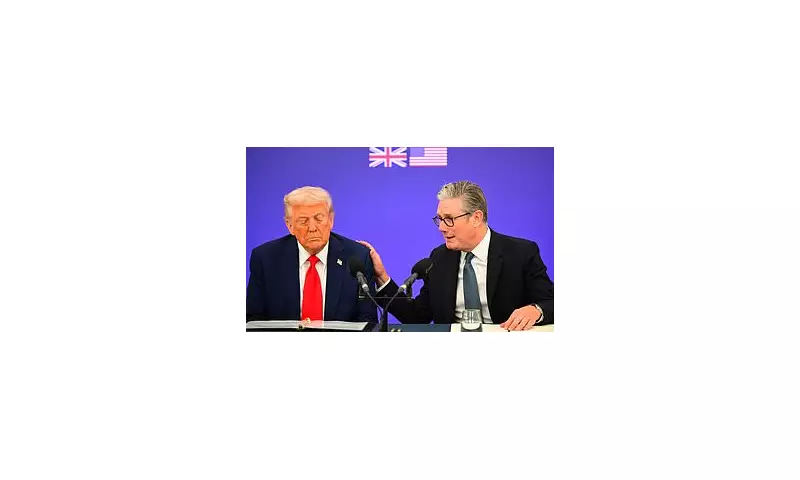
In a defining foreign policy address that sets clear blue water between New Labour and his prospective government, Sir Keir Starmer has publicly stated he would work with Donald Trump if the former president secures a second term in the White House.
The Labour leader used his keynote speech at London's prestigious Chatham House to outline his approach to global affairs, making several significant declarations that mark a departure from the party's recent past.
Working With Trump 'Without Fear or Favour'
Sir Keir stated unequivocally that the UK must maintain its special relationship with the United States, regardless of who occupies the Oval Office. "We will work with whoever is elected president of the United States," he declared, emphasising that national interest must transcend personal politics.
This pragmatic stance signals a significant shift from the more ideological positioning of previous Labour leaderships and demonstrates Starmer's commitment to positioning Britain as a reliable international partner.
Urgent Call for Sustained Gaza Ceasefire
In one of his strongest statements on the conflict to date, the Labour leader demanded an "immediate humanitarian ceasefire" in Gaza, arguing it must be "sustainable" rather than temporary.
"It cannot be a ceasefire that collapses after a few days," Starmer insisted, calling for a political solution that ensures long-term peace and security for both Israelis and Palestinians. This position aligns with growing international pressure for a lasting resolution to the devastating conflict.
Defending Free Speech Amid Campus Tensions
Addressing recent controversies surrounding university protests and cancel culture, Starmer delivered a robust defence of free speech principles. He warned against the dangers of shutting down debate, particularly in academic institutions where challenging ideas should be encouraged.
"We must never fall into the trap of denying the right to disagree," he stated, positioning himself as a defender of open discourse while acknowledging the importance of combating genuine hate speech.
Distance from Blair-Era Foreign Policy
In what appears to be a deliberate move to distance himself from Tony Blair's legacy, Starmer explicitly rejected the doctrine of liberal interventionism that characterised the Iraq War era.
His speech emphasised a foreign policy based on "progressive realism" – focusing on practical solutions rather than ideological pursuits. This approach aligns with his broader project of reforming the Labour Party's image on national security and international relations.
The address comes as Starmer seeks to establish his credibility as a potential prime minister on the world stage, demonstrating both pragmatic realism and clear moral principles in his vision for Britain's global role.






